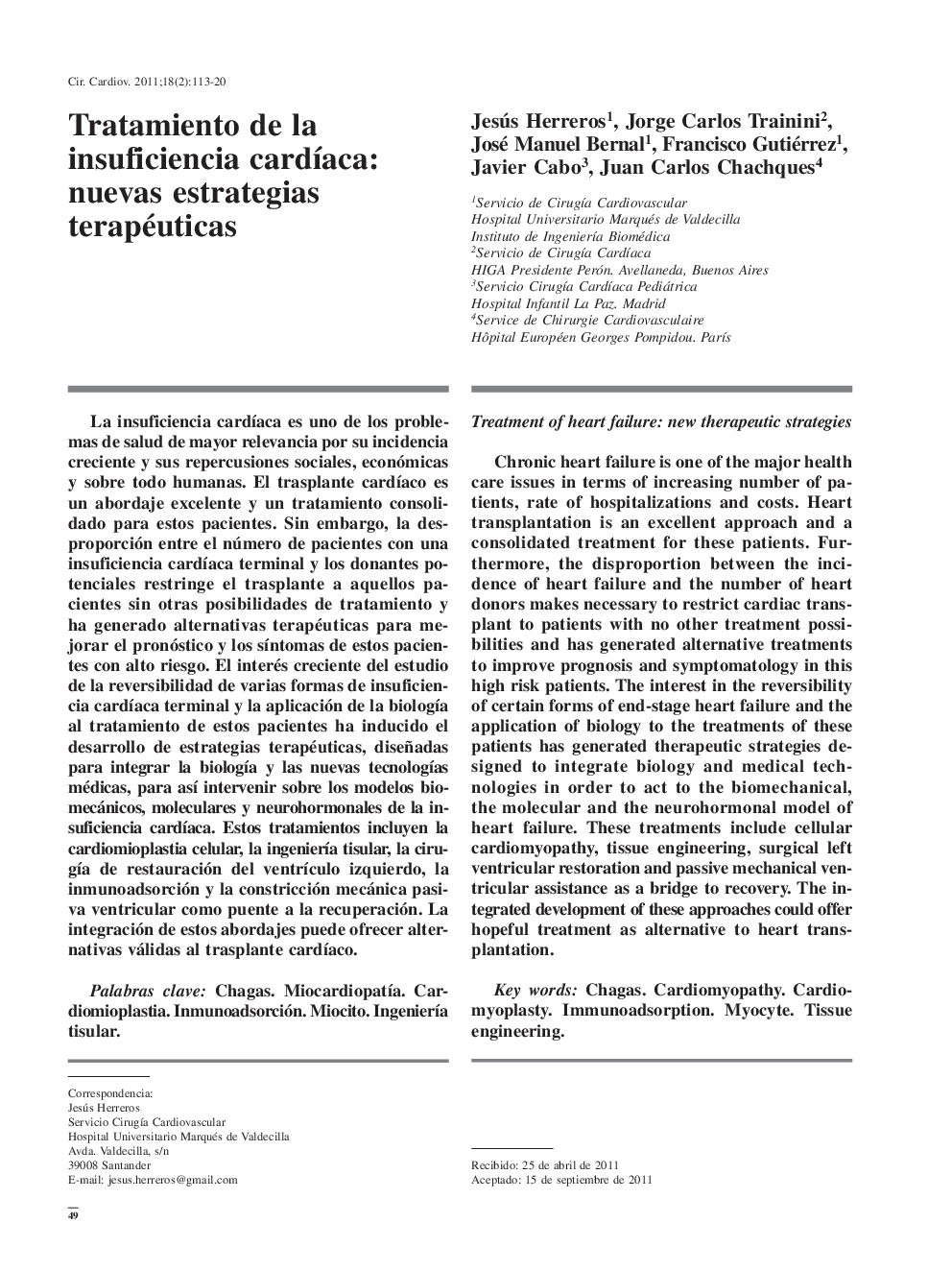| Article ID | Journal | Published Year | Pages | File Type |
|---|---|---|---|---|
| 2908224 | Cirugía Cardiovascular | 2011 | 8 Pages |
La insuficiencia cardíaca es uno de los problemas de salud de mayor relevancia por su incidencia creciente y sus repercusiones sociales, económicas y sobre todo humanas. El trasplante cardíaco es un abordaje excelente y un tratamiento consolidado para estos pacientes. Sin embargo, la desproporción entre el número de pacientes con una insuficiencia cardíaca terminal y los donantes potenciales restringe el trasplante a aquellos pacientes sin otras posibilidades de tratamiento y ha generado alternativas terapéuticas para mejorar el pronóstico y los síntomas de estos pacientes con alto riesgo. El interés creciente del estudio de la reversibilidad de varias formas de insuficiencia cardíaca terminal y la aplicación de la biología al tratamiento de estos pacientes ha inducido el desarrollo de estrategias terapéuticas, diseñadas para integrar la biología y las nuevas tecnologías médicas, para así intervenir sobre los modelos biomecánicos, moleculares y neurohormonales de la insuficiencia cardíaca. Estos tratamientos incluyen la cardiomioplastia celular, la ingeniería tisular, la cirugía de restauración del ventrículo izquierdo, la inmunoadsorción y la constricción mecánica pasiva ventricular como puente a la recuperación. La integración de estos abordajes puede ofrecer alternativas válidas al trasplante cardíaco.
Chronic heart failure is one of the major health care issues in terms of increasing number of patients, rate of hospitalizations and costs. Heart transplantation is an excellent approach and a consolidated treatment for these patients. furthermore, the disproportion between the incidence of heart failure and the number of heart donors makes necessary to restrict cardiac transplant to patients with no other treatment possibilities and has generated alternative treatments to improve prognosis and symptomatology in this high risk patients. The interest in the reversibility of certain forms of end-stage heart failure and the application of biology to the treatments of these patients has generated therapeutic strategies designed to integrate biology and medical technologies in order to act to the biomechanical, the molecular and the neurohormonal model of heart failure. These treatments include cellular cardiomyopathy, tissue engineering, surgical left ventricular restoration and passive mechanical ventricular assistance as a bridge to recovery. The integrated development of these approaches could offer hopeful treatment as alternative to heart transplantation.
